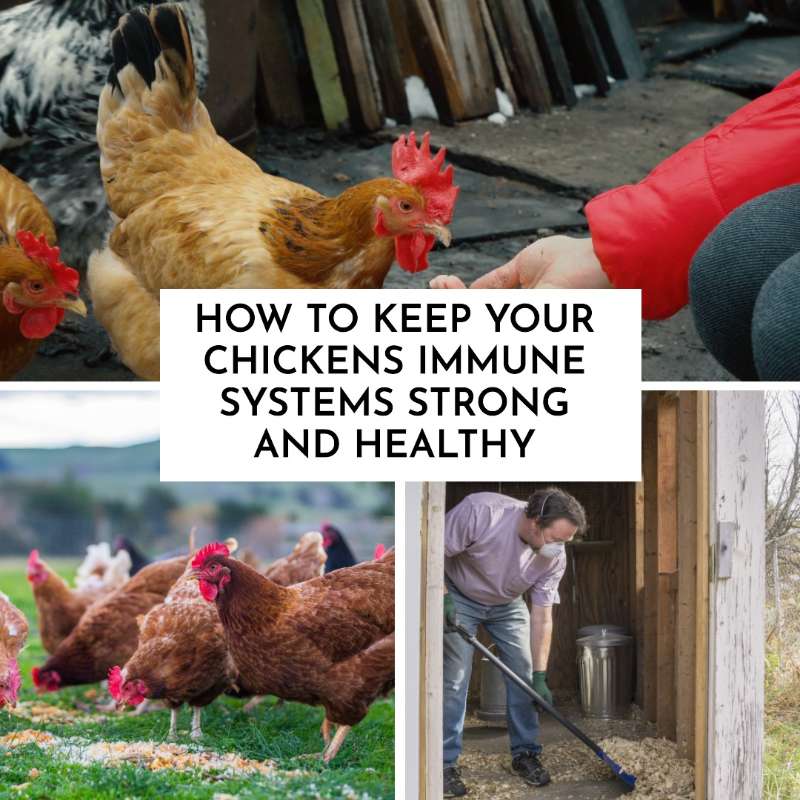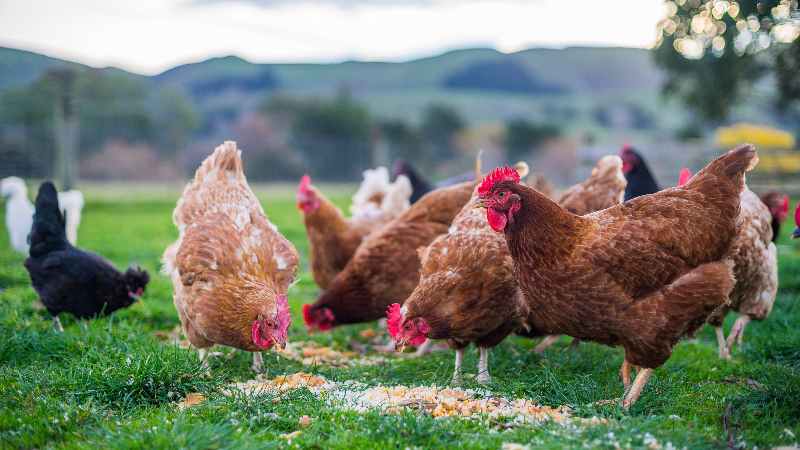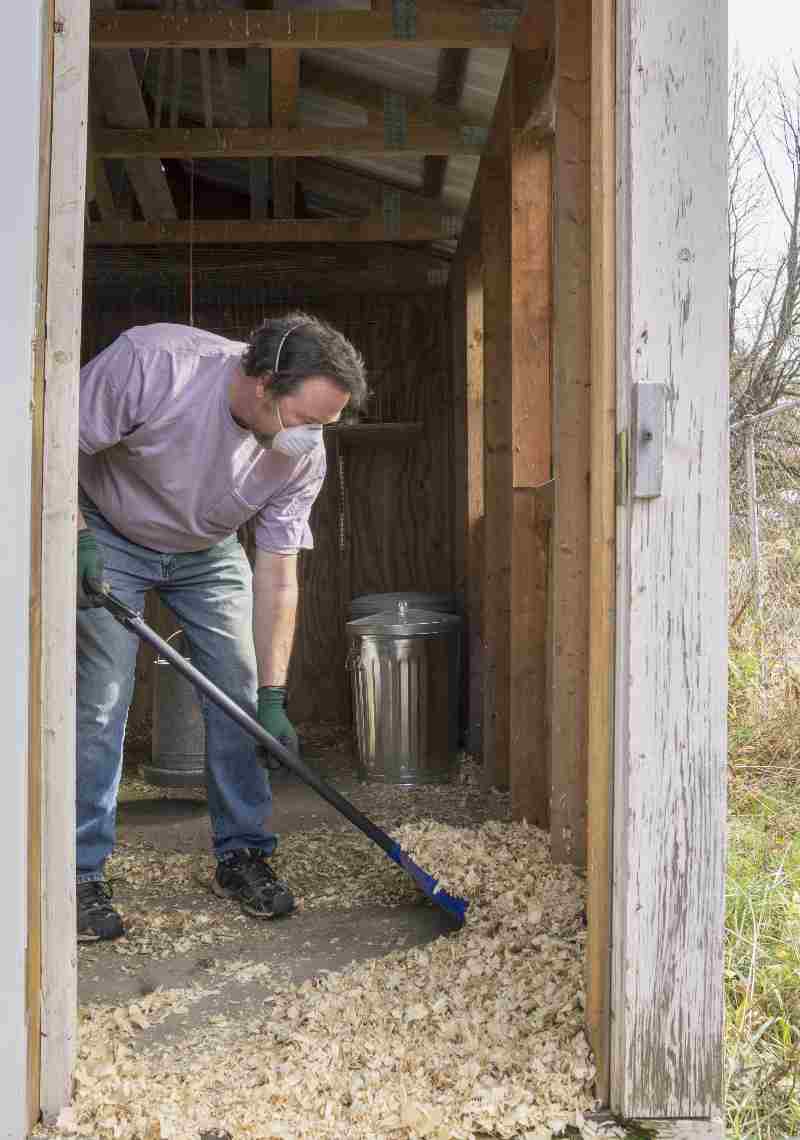How To Keep Your Chickens Immune Systems Strong and Healthy

Make sure to like Living Green and Frugally on Facebook, Shop at Amazon to help support my site and explore our PINTEREST BOARDS for innovative ways you can become self-sufficient.
Ensuring the health and well-being of your flock goes hand in hand with nurturing robust immune systems in chickens. A resilient immune system not only safeguards these birds from diseases but also contributes significantly to their overall vitality and productivity. While chickens possess innate defense mechanisms, supporting and bolstering their immune health requires a multifaceted approach involving meticulous care, nutrition, and management.
In this comprehensive guide, we delve into ten essential strategies aimed at fortifying the immune systems of your feathered companions. From dietary considerations to preventive measures, habitat maintenance to hygiene practices, each facet plays a crucial role in cultivating and sustaining strong immunity in chickens. By adopting these practices, poultry enthusiasts can ensure their flocks remain resilient and healthy, thereby promoting a thriving and disease-resistant environment.
Join us as we explore these fundamental strategies that can serve as the cornerstone for a proactive approach to chicken care, empowering poultry owners to create an optimal environment conducive to the well-being and vitality of their feathered friends.
Nutritious Diet:
A well-balanced diet is fundamental for robust immunity in chickens. Ensure their feed comprises high-quality grains, protein sources (like soybean meal or fish meal), vitamins, and minerals. Adequate nutrition helps in the production of antibodies and strengthens the immune response. Including supplements like probiotics, prebiotics, and immune-boosting herbs (such as oregano or garlic) can further fortify their immune systems.
- Provide a balanced diet comprising:
- High-quality grains (corn, wheat, barley)
- Protein sources (soybean meal, fish meal)
- Essential vitamins and minerals (Vitamin A, D, E, calcium)
- Supplement with:
- Probiotics to enhance gut health
- Prebiotics for improved digestion
- Immune-boosting herbs (oregano, garlic) known for their antimicrobial properties

Clean Water Supply:
Access to clean, fresh water is indispensable for chickens. Water plays a critical role in maintaining hydration and aiding in digestion, both essential for optimal immune function. Regularly clean waterers to prevent bacterial growth and change water frequently to prevent contamination.
- Ensure fresh, clean water is available at all times
- Regularly clean waterers to prevent bacterial growth
- Change water frequently to avoid contamination
Vaccination and Preventive Measures:Following recommended vaccination schedules is crucial for safeguarding chickens against common diseases. Consult with a veterinarian to establish a vaccination program tailored to your flock’s specific needs. Additionally, practice biosecurity measures to limit exposure to potential pathogens, such as limiting visitors, quarantine for new birds, and regular cleaning and disinfection protocols.
- Consult a veterinarian to establish a tailored vaccination schedule
- Practice strict biosecurity measures:
- Limit visitors to the coop
- Quarantine new birds before introducing them to the flock
- Implement regular cleaning and disinfection protocols
Parasite Control:
External and internal parasites, such as mites, lice, worms, and ticks, can compromise chicken health and immune function. Implement regular parasite control measures through vet-recommended deworming schedules, using diatomaceous earth, or other natural remedies to minimize parasitic infections.
- Follow a vet-recommended deworming schedule
- Use natural remedies like diatomaceous earth for parasite control
- Regularly inspect birds for signs of external parasites (lice, mites) and treat promptly
Stress Management:
Chickens are sensitive to stress, which can suppress their immune systems. Minimize stressors by avoiding overcrowding, maintaining a consistent routine, handling birds gently, and providing environmental enrichment like perches or toys.
- Avoid overcrowding in the coop
- Maintain a consistent routine for feeding, cleaning, and handling
- Provide environmental enrichment (perches, toys) to reduce stress
Exercise and Free Range Time:
Encourage physical activity and foraging by allowing chickens access to a safe outdoor area. Free-ranging exposes them to natural elements, promotes exercise, and boosts their mental stimulation, contributing positively to their immune health.
- Allow chickens access to a safe outdoor area for free-ranging
- Encourage physical activity and foraging to promote exercise and mental stimulation
Proper Housing and Environment:
A clean and well-maintained coop is vital for preventing stress and disease in chickens. Ensure adequate ventilation to reduce humidity, which can harbor pathogens. Provide ample space per bird, adequate roosting areas, nesting boxes, and clean bedding to minimize stress and promote healthy behavior.
- Maintain a clean coop with proper ventilation to reduce humidity
- Provide ample space per bird and clean bedding regularly
- Ensure roosting areas and nesting boxes are sufficient for the flock’s size

Regular Health Checks:
Conduct routine health checks to monitor your flock’s well-being. Keep an eye on their behavior, appetite, droppings, and overall appearance. Early detection of any abnormalities or signs of illness allows for prompt intervention, reducing the impact on the immune system.
- Monitor bird behavior, appetite, droppings, and overall appearance
- Act promptly if you notice any abnormalities or signs of illness
- Consult a vet if needed for professional guidance
Hygiene Practices:
Maintain personal hygiene when handling chickens to prevent the transmission of diseases between birds or from humans to poultry. Wash hands before and after handling chickens and clean equipment thoroughly to prevent contamination.
- Maintain personal hygiene when handling chickens
- Wash hands thoroughly before and after interacting with the flock
- Clean equipment and tools regularly to prevent disease transmission
Regular Monitoring and Adaptation:
Keep a record of your flock’s health and performance over time. Regularly assess and adapt your management practices based on observations and consultations with poultry experts or veterinarians.
- Keep detailed records of flock health and performance
- Regularly assess management practices and make adjustments based on observations and expert advice
Maintaining strong immune systems in chickens necessitates a multi-faceted approach, encompassing nutrition, hygiene, preventive measures, and attentive management. By implementing these strategies, you can effectively support your flock’s immune health, ensuring their vitality and productivity while minimizing the risk of diseases and infections.